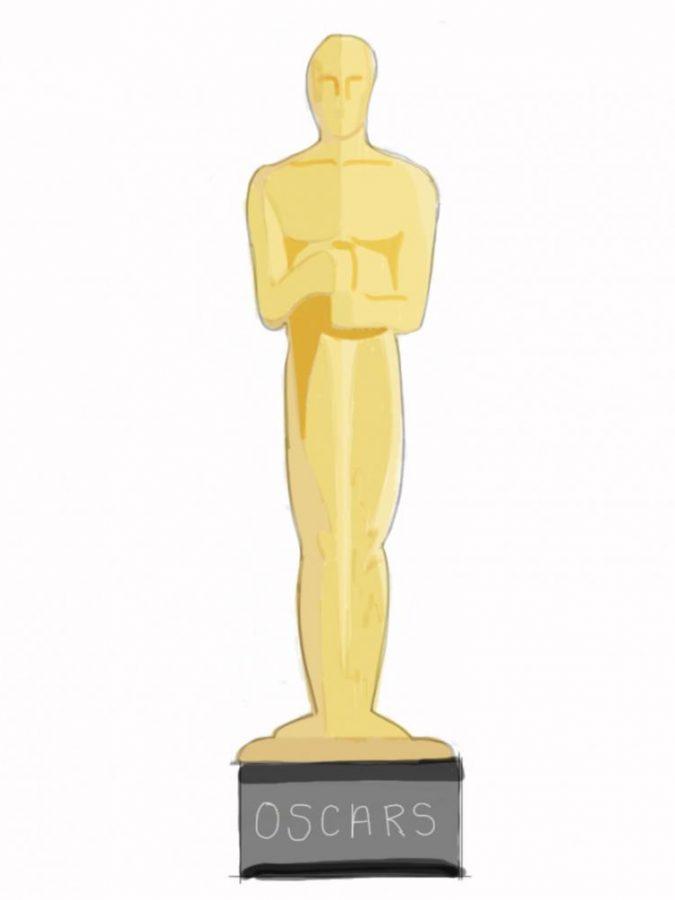This year’s Oscars create controversy
This year’s Oscar nominations have sparked controversy over the lack of diversity present in the nominees. Arguments have risen over people being nominated for talent, or for diversity–in color and in gender. Some people have brought back April Reign’s #OscarsSoWhite Twitter hashtag from 2015 as a result of this year’s nominations.
While I definitely think that people should be nominated based on talent rather than being a person of color or a woman alone, I believe that people in these groups have been cut out of the nominations merely because they are a part of these groups. The Oscars nominations have a running history of mostly nominating white men, and although the Oscars seemed to be moving in the right direction, there is still a lot of work to be done. The root problem lies in the people in the Academy voting for the nominees, in my opinion.
This year, only one woman of color was selected for the Best Actress Award, that being Cynthia Erivo, who starred in the movie “Harriet.” There were plenty other women of color that people expected, or at least hoped to be nominated–some examples being Jennifer Lopez starring in “Hustlers” and Awkwafina performing in “The Farewell.” And these wouldn’t be pity points based on diversity alone: Lopez received multiple critics awards while Awkwafina won a Golden Globe for Best Actress. The argument that people should not be chosen merely out of a hope to make the Oscars more diverse gains a lot of holes when you see what these people have already accomplished outside of the Oscars.
To add fuel to the fire, this year’s selection of nominations for Best Director is made much more offensive when reflecting on the history of the 92-year-old Oscar awards. In all of that time, only five female directors have been nominated for Best Director, and out of those five, only one has ever won, that being Kathryn Bigelow, who won the award in 2010 for her movie “The Hurt Locker.” This year, despite a clear chance shining behind Greta Gerwig, who directed “Little Women,” the entire selection was once again male. The only upside to it was that, at the very least, men of color showed up on the Best Director nominations. Nonetheless, in 92 years, only five women have been nominated for Best Director, with only one of them winning, stinks of suspicion. Although the amount of women included in the Oscars overall has improved quite a lot over time, there is still progress we need to make before gender and race equality on the Oscars is achieved.
It all comes down to the lack of diversity within the Academy itself. Certainly, over the years, the Academy has made an effort to increase the diversity in it. In 2015, only 8% of its members were of color, but it has risen to 16% by now. Along with this, the amount of women in the Academy has increased from 25% to 32%. Nonetheless, it is quite clear why there is a lack of diversity in the Oscars. If there is a lack of diversity within the Academy, of course there is a lack of diversity in the Oscars Nominations themselves. If members are not women or are not of color, they will most likely be less inclined to keep diversity in mind when voting for nominations. Or, they may be insistent on keeping the Oscars the same as they always have been, for lack of a better way of putting it: full of white men.
For the Oscars nominations in the future, it would be best to continue to allow more diverse people into the Academy. Academy members should vote based on their actual preferences and the true talent of the nominees, but more Academy members of color and women will reflect more ideas and preferences among all people, not just a certain racial and gender group. The Academy needs to continue working towards creating a more colorful board of voters.
The fight for diversity in the media, not just at the Oscars, will be an everlasting battle that may never end. We need to continue to speak up about the lack of diversity in the Oscars until changes are made to the Academy, or people become more open to talent that comes from all colors and genders.
Your donation will support the student journalists of James Bowie High School. Your contribution will help cover our annual website hosting costs. Any contributions made through this service are NOT tax deductible. If you would like to make a tax deductible donation OR to subscribe to our print edition, please contact us at [email protected].










